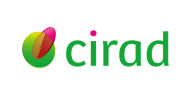About the Journal
Aims and Scope
The Revista Latinoamericana de Estudios Rurales (Latin American Journal of Rural Studies) is a continuous publication of two issues per year of the Asociación Latinoamericana de Sociologia Rural - ALASRU- (Latin American Association of Rural Sociology) which is published jointly with the CONICET- founded Centre for Labour Studies and Research (CEIL-CONICET) of Argentina and aims to promote the circulation of knowledge generated on rural and agrarian issues in Latin America.
Since its creation in 1969, ALASRU has been building bridges between the continent's professionals dedicated to Rural Sociology, organising congresses, conferences and publications, and has been a permanent forum for exchange between academics and organisations of peasants, family farmers, indigenous people and day labourers in the region. Its academic activity has placed special emphasis on showing the living and working conditions of rural populations, pointing out the vulnerability, poverty and exclusion to which large sectors of Latin American rural societies are subjected. For ALASRU, this journal represents a vital means to promote academic and political discussion on topics of interest to the Association, in an environment of plurality of ideas and scientific quality.
It receives original articles in Spanish and Portuguese that address theoretical, empirical and methodological issues in the field of rural sociology, related to historical, economic, social, environmental and political dimensions of agriculture and the rural environment of the continent.
Peer review process
The papers received will be subject to a first general review by the Editorial Committee of the journal, which will assess their academic quality and thematic adequacy. Papers that do not meet the thresholds of quality or disciplinary relevance may not be accepted and therefore not pass to the next phase of external evaluation, a circumstance that will be communicated to the author(s).
Papers that meet the set of criteria mentioned above will be considered for publication and will enter the external evaluation process, which will be communicated to the author(s).
The peer review process will be carried out according to the "double blind" method. The evaluation process will be carried out by recognized specialists from outside the institution in the area or subject matter of each paper.
Open access policy
The journal provides immediate free access to its content under the principle that the free circulation of research results promotes a greater exchange of knowledge.
Acceptance of the manuscript by the journal implies the non- simultaneous submission to other journals or editorial bodies and the non-exclusive transfer of the authors' economic rights in favor of the publisher, who allows the reuse, after editing (postprint), under Creative Commons 4.0 International (Attribution-NonCommercial-ShareAlike) license ((https://creativecommons.org/licenses/by-nc-sa/4.0/). You can share, copy, distribute, alter, transform, generate a derivative work, perform and publicly communicate the work, provided that: a) the authorship and the original source of publication (journal, publisher and URL of the work) are cited; b) they are not used for commercial purposes; c) the same terms of the license are maintained.
Archive
This journal uses the LOCKSS system to create a distributed archive among participating libraries, allowing these libraries to create permanent archives of the journal for preservation and restoration purposes.
Code of Ethics
ReLaER adheres to the international standards and codes of ethics established by the Committee on Publication Ethics in the document "Code of Conduct and Best Practices Guidelines for Journals Editors, COPE" available at:https://publicationethics.org/files/Code_of_conduct_for_journal_editors_Mar11.pdf.
Plagiarism detection
For plagiarism detection, ReLaER checks randomly selected paragraphs of articles with web search engines.





















